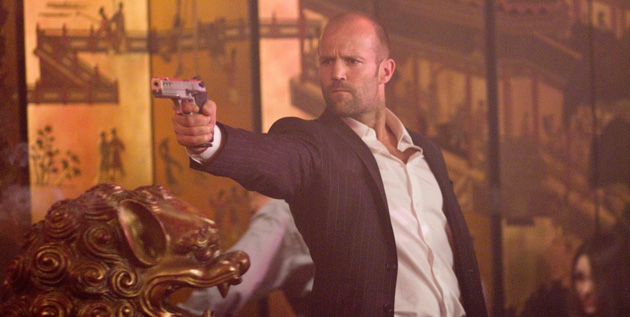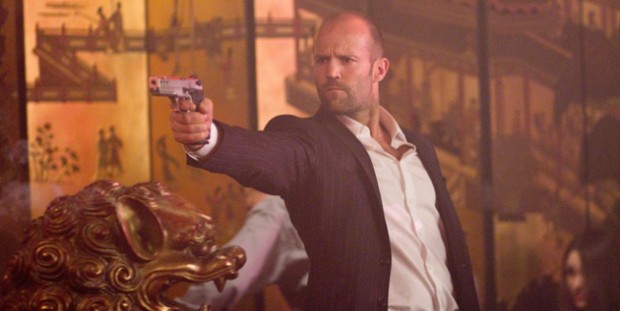
Boaz Yakin isn’t necessarily the type of guy you’d expect to be making another one of these Hollywood-tailored Jason Statham movies. For one thing, as the film’s writer-director, he’s essentially the sole creative engine, which seems to be increasingly rare in the world of potently-budgeted actioners that have an eye for box-office receipts first and genuine creativity second. Yakin’s indie roots, beginning with Fresh in 1994 and continuing with 1998’s A Price Above Rubies (both of which, by the way, were produced by Safe‘s Lawrence Bender), are also not what you’d assume for the maker of something like Safe.
All of which is to say that, while Safe may ultimately not be much more than another entry in the largely repetitive string of its ilk, Yakin’s oversight of it is — for me, at least — the source of legitimate interest. In the roundtable interview below, he was able to talk at length about a variety of things, including the joys of working with Statham (and the rewards of stretching the actor’s repertoire), the pains of shooting a frenetic set-piece within the busy confines of New York City, and the on-the-fly mindset he adopted while penning the film.
So Jason says you’re the greatest humor writer there is. [Laughs.] Are we to believe that you alone put all that humor into Jason’s [work]?
Boaz Yakin: Well, I wrote this script and directed it. Jason is also – there’s some humor, actually, that we ended up taking out because it was actually the kind of stuff that somebody different than Jason would do. And Jason’s really good at knowing what he can sell and what he’s not going to sell. So he’s a pretty self-aware guy.
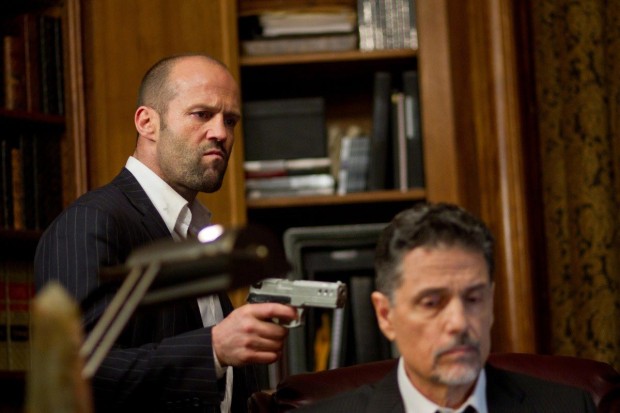
What’s the difference between Jason “the actor,” the person behind the scenes, and Jason “the image” he wants to perpetuate on the screen? And how do you bridge those two?
Well, I don’t know if anyone is really like that guy that he projects on screen. But I think that Jason has a lot of confidence and he’s a very strong and physical and kind of intense guy. But he’s very playful [and] a kind of childlike guy as well in real life. And, like all of us, [he] has some insecurities and so on that he’s battling with. And I think that’s what makes him interesting to watch, because even if the film isn’t showing you all that stuff, there’s that tension that’s underneath it. And I think that’s what makes movie stars interesting – the stuff they’re dealing with that isn’t necessarily on screen.
And you make him more vulnerable, through this character, than he has perhaps ever been in any other movies.
Yeah, and that’s one of the things I’m really proud of about the film. The movie is in Jason’s wheelhouse – it’s not like reinventing Jason’s wheel, or whatever that expression is – but he gets to show some colors in it and explore some elements of his personality and his acting palette that he hasn’t really done for a long time. And I think he does it with flying colors. For me, there’s something about Jason [where] I think he’s a much better actor than people give him credit for, or that he gives himself credit for. And when he does something that’s emotional, because he’s not a kind of trained actor in a way that some of those other guys are, it comes out, when he gets to the right place, in a more honest and sort of simple and true way than I think a lot of other actors – who I won’t name, who do more acting-type parts – [who] have to work backwards a lot to get to the kind of simplicity that Jason gets to much more naturally. And I enjoyed getting to there with Jason.
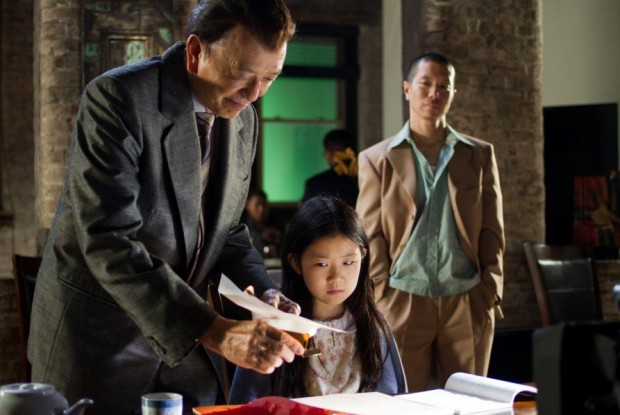
How did you fashion the twists and turns in this script? Did you map them out?
I made them up as I went along. I mean, it was kind of a fun script to write in that way, in that it was sort of like I really put myself into the shoes of the two main characters – and I understood the premise that I was going for – and then everything that followed was just like, “Okay, what would somebody do if these people showed up right now?” And this is what they would do. This is what I would try and get to. “Whoops, that didn’t work out so well, he’s ended up over here.” [Laughs.] So there was this sort of improvisatory quality that I wanted the film to have, because it’s about somebody who’s improvising through the course of a night. And that’s sort of how I wrote the script. For better or worse, I wanted it to have this sort of improvisational quality of like, “Wait, what’s he doing now? Oh, that makes sense.” That’s what I tried to do with it.
Was it a challenge to shoot an action movie with a child at the center of the action? Did that pose any kind of particular [challenges]?
Well, she was wonderful. Catherine was wonderful. I really wanted to make sure that the girl who played that part was not very “actress-y,” and not, like, a beautiful, instant movie star child. Someone that felt more real and kind of had a sympathetic quality that didn’t feel “actor-ish” – and she really captured that. That being said, she was afraid of a lot of the intense action stuff. And so there was a really kind of concerted effort to figure out how to use her just in the parts that you needed to. And then you use doubles and all those things, so we were able to get around that. But I think that having her – she’s kind of a strong little girl, except for when a lot of crazy shit starts happening. [Laughs.] And that sort of played into her character as well in a way that I was able to sort of navigate. But, you know, action is just very time consuming and difficult to shoot period.
With the improvising and the action scenes, how much room did the characters have as far as ad-libbing?
We didn’t ad-lib nearly anything. I mean, you ad-lib dialogue changes and change how a scene is – ad-libbing is more like in rehearsal, where you’re talking about the scene and an actor and you have a discussion about it, and before shooting you may do small things. “Why am I talking to someone in the car? I wouldn’t.” And you start going, “Okay, let’s do it over here.” But it’s not like there’s really a lot of ad-libbing going on. It’s more like discussions about how to make something work.
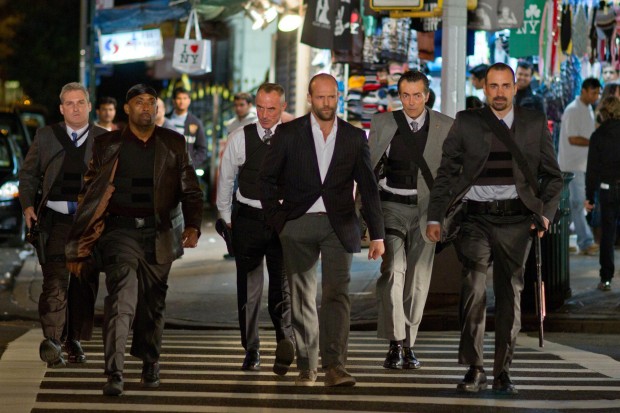
If this does well, would you want to do more action?
I don’t know. I tend to kind of jump around genres a lot. I find action directing kind of very technical, and so you can feel a lot like a traffic cop when you’re doing action. And I found it worth doing because there was sort of an emotional hook that I liked in this particular story, and it made doing the action interesting to a degree. But I would have to say that my favorite things to do in this film have to do with how the editing was planned, and that first 30 minutes, how the structure sort of unfolds, creating a story where you have two main characters who don’t actually meet until 35 minutes in and still make it feel like it has some sense of inevitability and connection. Like, those are the things that I find interesting. Once we have to start doing car crashes, it’s [like], “Okay, I hope no one gets hurt.” [Laughs.]
By actually working with Lawrence Bender, does it make it easier for you? Someone who works with most of Tarantino’s films, I’m assuming it’s [somewhat] easier getting those locations.
Yeah, Lawrence is an old friend of mine. We’ve been working – like, he produced my first film from the ‘90s. We made two films together, Fresh and A Price Above Rubies. And we haven’t worked together for quite a while, so it was kind of nice to reconnect and work together. Lawrence is a very strong producer. And he also comes from the sort of independent film background that I did, so he knows how to struggle to get a lot for a little. And even though this is sort of what you’d call a moderately budgeted film, it was very difficult to do because we were trying to make for what a lot of people would make for, like, $40 million or $50 million for about well under $30 million. And Lawrence was instrumental in helping us be able to do that.
How have things changed since the beginning of your career?
I just feel old. [Laughs.] I feel old and I realize, as we all do, that the only thing I’ve learned since then is that I don’t know shit. [Laughs.] I thought I was going to know something someday, and now I realize I’m never going to know anything. [Laughs.] And I got through the midlife depression of that feeling, and now I sort of accept it.
Did you get to meet your fair share of Russian gangsters on this one?
I know a lot of Russians, but very few gangsters. [Laughs.] [This] kind of annoys my Russian friends. “Why are there always Russian gangsters in [these] films?” [Laughs.]
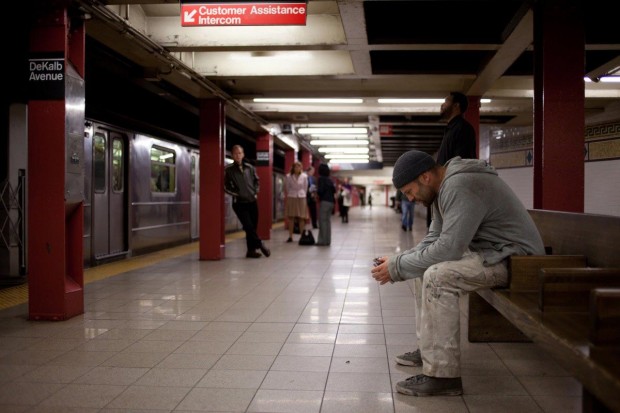
How do you answer that?
You know, what are you going to do? Everyone in this movie is bad. It’s funny, you do a movie and Asian people see the film and say, “Oh, it’s racist, all the Asians are bad.” Or the Russians: “It’s racist, all the Russians are bad.” And it’s like, dude, in this one, everyone’s bad. [Laughs.]
What was the toughest moment of the [production]?
I would say shooting on the subways in New York. It was one of the most difficult things I’ve ever done in my entire history of making movies.
From a physical point of view as well as a scheduling point of view?
Physicality, safety issues, things you can and can’t do, the time you have to get it done, specificity. It was just – it was very difficult. That was the hardest thing I had to do. [And] we had a tight shooting schedule. We were trying to do stuff on the subways for, say, a tenth of the budget of The Taking of Pelham 123 that Tony Scott did here. The kind of thing we were trying to get done in that environment was very difficult.
Do you [and Jason] hope to work together again?
Yeah, if the right thing comes up, absolutely. I really enjoyed the process of working with Jason.
What are you working on next?
There are a few things I’m working on, [some] things I’m writing. But nothing that’s anywhere near [finished].
Safe hits wide release on Friday, April 27th.

